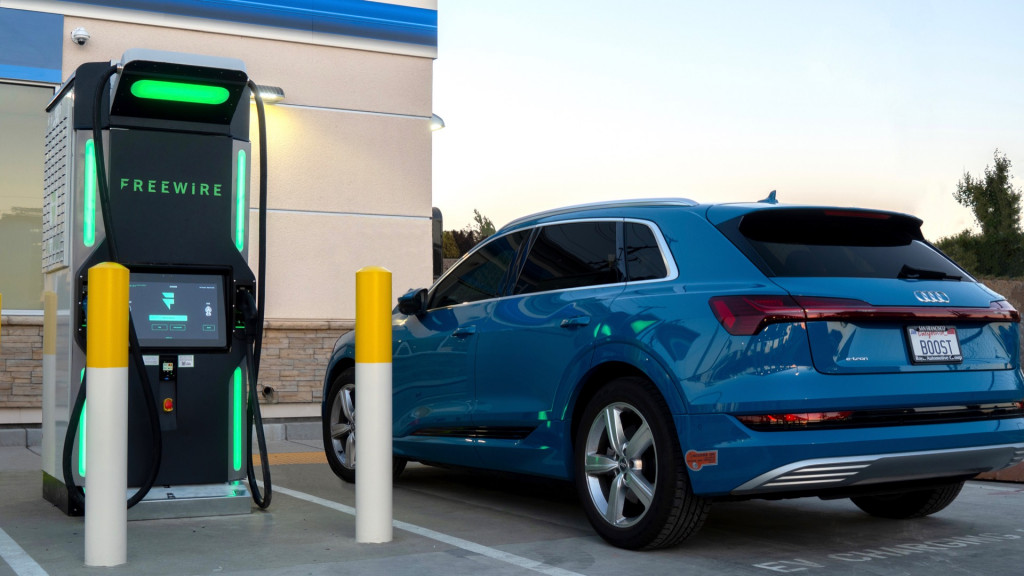FreeWire Technologies is demonstrating a more flexible alternative to conventional fast-charging stations at an ampm convenience store in Lodi, California.
The company announced Thursday that it had installed a Boost Charger station, which uses a battery buffer to "boost" onsite power, at the store.
While conventional DC fast-charging stations require a dedicated power supply and other equipment, the Boost Charger connects to existing electrical infrastructure through a single-phase connection, according to FreeWire.
The battery buffer enables more power than would normally available through such a connection, allowing for faster charging. Drivers can get 100 miles of range in 10 minutes, according to FreeWire—with a more straightforward installation process.
These fast-charging stations are ideal where there might not be the traffic to otherwise support a charging station, or the electrical service might not otherwise be good enough to support 50-kilowatt and higher fast charging.

FreeWire Boost Charger at convenience store
The Boost Charger can deliver up to 120 kw and has a 160-kwh battery buffer, the company previously said. It has CHAdeMO and Combined Charging Standard (CCS) connectors, and can plug into Tesla electric cars with an adapter, according to FreeWire.
The initial location is along two major highways in California's Central Valley. FreeWire said it planned to add more locations later this year and in 2021, but did not provide other details.
FreeWire's investors include Volvo and BP—and ampm is owned by BP.
Others have also found, with battery buffers, that costs and installation space are greatly reduced. In 2018, researchers at North Carolina State University unveiled a prototype 50-kw fast-charging station they claimed cost half as much as conventional stations—with one-sixteenth the physical footprint.
EVgo, among other charging companies and networks, has tested fast chargers with battery buffers. In 2019, EVgo installed batteries at 11 DC fast-charging sites, primarily with the aim of curbing spikes in power demand in order to minimize expensive demand charges from utilities.
